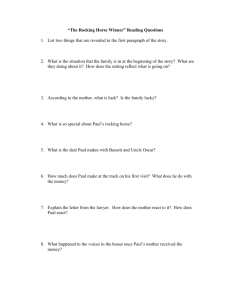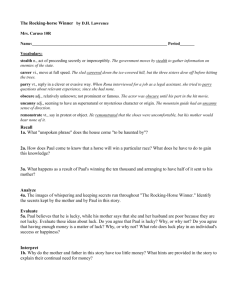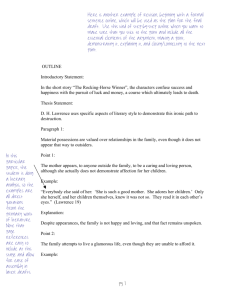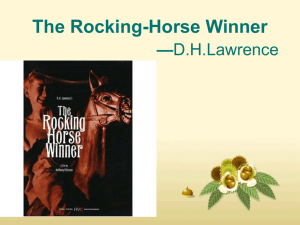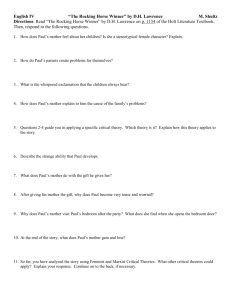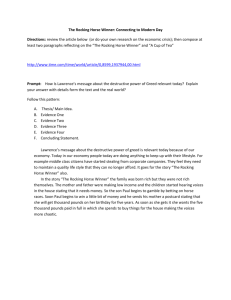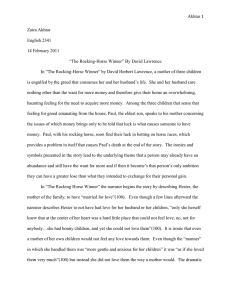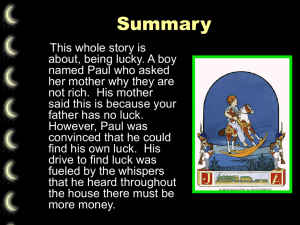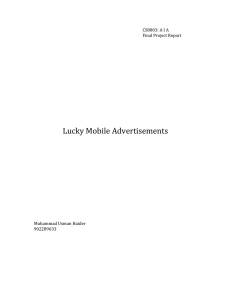"The Rocking-Horse Winner" Analysis Essay
advertisement
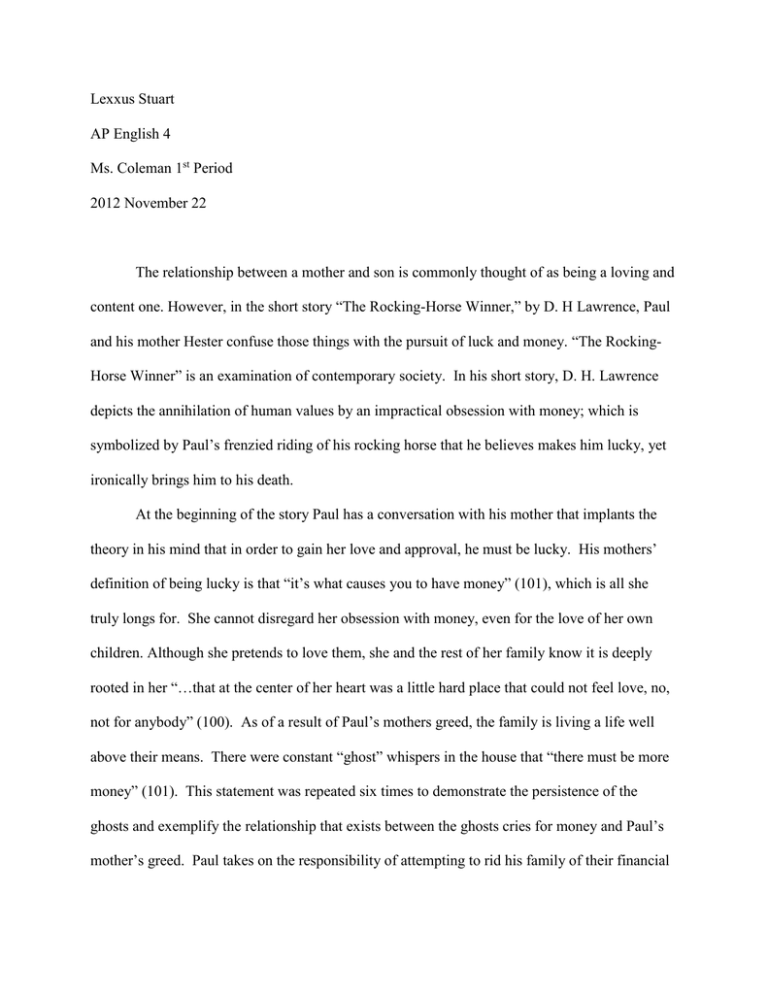
Lexxus Stuart AP English 4 Ms. Coleman 1st Period 2012 November 22 The relationship between a mother and son is commonly thought of as being a loving and content one. However, in the short story “The Rocking-Horse Winner,” by D. H Lawrence, Paul and his mother Hester confuse those things with the pursuit of luck and money. “The RockingHorse Winner” is an examination of contemporary society. In his short story, D. H. Lawrence depicts the annihilation of human values by an impractical obsession with money; which is symbolized by Paul’s frenzied riding of his rocking horse that he believes makes him lucky, yet ironically brings him to his death. At the beginning of the story Paul has a conversation with his mother that implants the theory in his mind that in order to gain her love and approval, he must be lucky. His mothers’ definition of being lucky is that “it’s what causes you to have money” (101), which is all she truly longs for. She cannot disregard her obsession with money, even for the love of her own children. Although she pretends to love them, she and the rest of her family know it is deeply rooted in her “…that at the center of her heart was a little hard place that could not feel love, no, not for anybody” (100). As of a result of Paul’s mothers greed, the family is living a life well above their means. There were constant “ghost” whispers in the house that “there must be more money” (101). This statement was repeated six times to demonstrate the persistence of the ghosts and exemplify the relationship that exists between the ghosts cries for money and Paul’s mother’s greed. Paul takes on the responsibility of attempting to rid his family of their financial issues and restore their past happiness. This was meant to display how Paul’s encounters with the supernatural powers of the “ghosts” and their desire for money ignites a sudden need in him for luck which can only be fulfilled through his rocking horse and the luck it brings him. Even after Paul gives his mother five thousand dollars that he wins at the races the ghosts appear to be relentless; “Paul’s mother touched the whole five thousand. Then something curious happened. The voices in the house suddenly went mad." (107). Lawrence attempted to criticize that people are never truly satisfied no matter how much they receive, which is why Paul’s mother wanted more money even after receiving the large amount from Paul. Paul’s character overall is a victim of a capitalist society. Bassett and his Uncle Oscar capitalize from Paul’s predictions, even when he is near death. His mother knew there was a problem when she called the governess to the house, yet still protected Paul’s horse riding so that he could tell her the name of the winning horse. After he passes due to his hysterical debilitated state from anxiety due to his obsessed riding of his rocking horse, which symbolizes a getaway where Paul can find the names of the winning horses, Paul’s Uncle Oscar attempts to console his sister: “My God, Hester, you’re eighty-odd thousand to the good and a poor devil of a son to the bad” (110). It is as if he were counting her blessings and burdens for her on an imaginary scoreboard. Although she understood the circumstances, it is assumed that money still held top priority over her first born and only deceased son because she knew he was in danger, yet refused to intervene. She could still not relieve herself of her insatiable greed for money. Unlike the other characters in the story, Paul’s pursuit of money was selfless; he wanted the wealth not for himself, but for his mother. From his perspective, all he had to do was be lucky, luckier than his father, and he would be able to win his mother’s love and attention. Ironically, the title of the story is “The Rocking-Horse Winner”, yet he loses his life. Also, Paul’s final words are “I am lucky” (110), which is ironic because he died as a result of the luck that he supposedly gained. The theme of this story is easily identifiable: Greed destroys love, values, and sometimes, life. Lawrence uses great symbolism and irony to make this short story effective.
